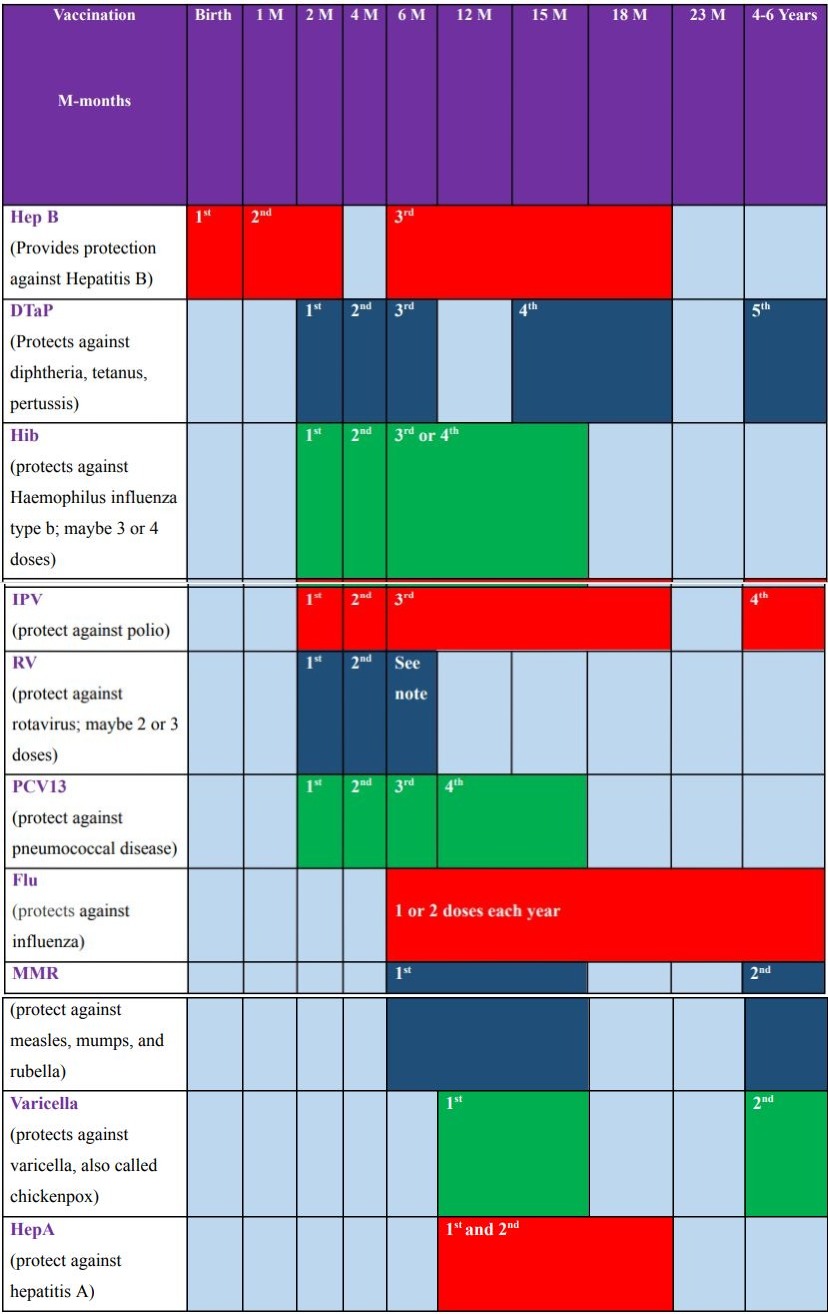
Babies are born with immunity as they are born with antibodies (proteins created by the body to fight disease) from their mothers before birth. Babies continue to get antibodies from breast milk through breastfeeding after their birth. However, immunity is only present in these two situations for a limited time. Hence, babies are immunised through vaccination to protect them from any disease that could affect their growth.
It is a known fact that vaccines are effective in providing immunity against some specific diseases. One might be confused as to why babies require immunisations against some diseases that they have never heard of. In India, several diseases that immunisation helps prevent once infected have killed a lot of children. After being vaccinated, most children are no longer exposed to such diseases. Hence, immunisations provide a shield for children from illness and eliminate the spread of disease to others.
Visit a top hospital for paediatric treatment in Goa in case your child is already suffering from the below conditions before vaccinations.
Importance of Immunisation in Babies
Immunity is the process of protecting the body by preventing various diseases. As the babies do not have a fully developed immune system during birth, they may develop a higher risk of infection, which may result in severe illness. Vaccines help the immune system by providing defence mechanisms against certain viruses. Hence, vaccines are considered to provide protection to babies by helping them build their natural defences.
Therefore, one of the best things that parents can do for their child's health is to vaccinate them. Immune systems are responsible for combating life-threatening infections through vaccinations. Antibodies that fight against weakened or inactivated viruses and bacteria (known as antigens) are produced by the immune system in response to the vaccines. If the body is exposed to those viruses or bacteria again in the future, these antibodies are ready to attack.
Types of Vaccinations that a Baby Requires
The baby usually receives many immunisations during the first two years of life to help with disease prevention. The immunisation is scheduled for each shot that the child receives for up to 6 years. It details the timing and number of vaccination shots given to the baby. It is based on the Centres for Disease Control and Prevention's (CDC's) schedule. To ensure that immunisation regimens are safe for babies, the CDC has conducted an extensive study.
Given below is the typical schedule for vaccinations for babies up to age 6. Every doctor’s perception varies, as they may recommend different schedules for different babies. The table below shows the monthly doses of vaccinations. Parents should communicate with the doctor to understand the different dosages of vaccines their child receives if the timetable calls for more than one month between doses.

Important Notes
Hib
Parents should communicate with the doctor to ensure whether the baby requires a dose at 6 months.
RV
Parents should communicate with the doctor to ensure whether the baby requires the third dose.
Flu
If receiving the flu vaccine for the first time, children between the ages of 6 months and 8 years old require two doses. There must be a 4-week gap between each dose.
MMR
Parents should ask the doctor whether their baby needs to get the MMR vaccine in case they are travelling out of the country.
Hep A
Parents should ask the doctor whether their baby needs to get the Hep A vaccine in case they are travelling out of the country.
All babies, even those who are admitted to the newborn critical care unit (commonly known as the NICU), require vaccines. The same CDC immunisation regimen is used for preterm and low-birth-weight infants. Before 37 weeks of pregnancy, a baby is considered preterm. Babies with low birth weights are born weighing less than 2.2 kg. Because preterm infants are more likely to experience health issues from diseases than babies born at term, vaccinations are important for them. Only the hepatitis B shot may be postponed for premature babies. The majority of newborn babies receive this shot within 24 hours of delivery. Babies might receive this vaccination later if they don't weigh enough or are healthy.
Consult our paediatrician in Goa if you require vaccination for your child at an affordable cost.



















 5 Min Read
5 Min Read









